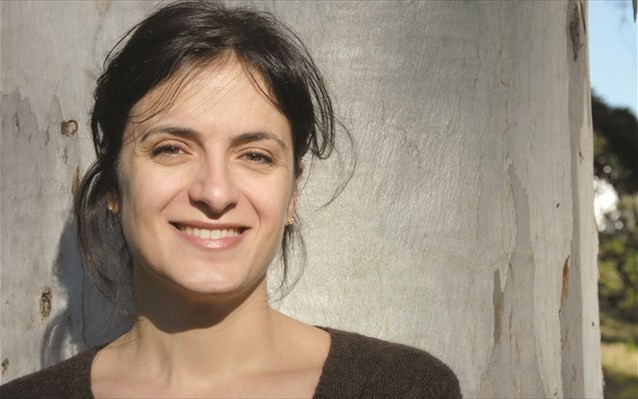MEXICO CITY (AP) — The G-20 nations are conditioning additional money for the International Monetary Fund on the European Union first increasing its financial stabilization funds to ease concerns about the euro zone debt crisis, officials said Sunday.
Officials participating in a meeting of G-20 nations’ finance ministers and central bank heads said an EU decision to add to the estimated euro500 billion ($675 billion) in firewall funds already committed to the effort would be essential before the rest of world considers contributing to the stabilization measures.
“Euro-area countries will reassess the strength of their support facilities in March. This will provide an essential input in our ongoing consideration to mobilize resources to the IMF,” the meeting’s closing joint statement said.
Christine Lagarde, head of the IMF, said the expectation that the EU’s firewall fund will be increased was widespread among G-20 officials.
“They all expect that the euro area will strengthen, consolidate, reinforce its firewall to make sure that it is both adequate and credible before they look at increasing the firepower of the fund (IMF).”
U.S. Treasury Secretary Timothy Geithner joined in the calls for the EU to do more.
“There is broad agreement that the IMF cannot substitute for the absence of a stronger European firewall and that the IMF cannot move forward without more clarity on Europe’s own plans,” he said, while noting the U.S. would not be making any increased contribution.
The weekend talks mainly focused on stability for the euro zone, where debt and economic problems, like the specter of a default by Greece, have threatened to destabilize global financial markets.
Though no specific amount in firewall funds was discussed, Geithner said the funds “have to be large … my sense is that they (Europeans) understand that.” Other officials said the added funds must be enough to calm market concerns and should be available to countries before they fully carry out promised fiscal reforms.
A senior G-20 official who spoke on condition she not be quoted by name said the consensus that the EU must act is broad, and include big potential lender countries like China and Japan. They feel the IMF can play a back-up role, but the EU’s own fund must be the first line of defense, the official said.
It appears Germany’s reluctance to further fund EU stabilization funds may be the sticking point, largely because the issue is a sensitive one in German domestic politics. Germany is the EU’s strongest economy and would probably be the biggest contributor, and the German parliament must still approve the current round of support efforts for debt-plagued Greece.
Geithner noted that “the G-20 is committed to making sure that the IMF has the resources it needs to help its members deal with the risks from Europe.”
German officials did not speak to the media following the conference but appear reluctant to increase stabilization funds.
In a column in the Mexican newspaper El Universal on the eve of the meeting, German Finance Minister Wolfgang Schauble wrote that “should we increase even more the firewalls? The response is a resounding no.” Schauble also rejected sharing other euro-zone country debts or expanding the euro money supply to meet countries’ budget gaps.
“This would not only not solve the problems of debt and competitiveness that brought the affected countries to their current state of affairs, it would also discourage their governments from carrying out consolidation and reform,” he wrote.
But Olli Rehn, the European Commission vice president for economic and monetary affairs, said he expected euro-leaders to sign on. “I trust (they will) decide to reinforce this combined lending facility in order to better contain market turbulence.
Rehn argued that it is “better to take a preventive approach.”
“Prevention is always better than correction, and indeed as we have a large enough financial firewall, we are much more convincingly able to contain the market turbulence that may still return even if we have experienced a certain period of stabilization recently,” Rehn said.
Discussing other economic matters, Geithner called the appreciation of China’s currency, the renminbi, “welcome progress.” China’s currency has risen about 12 percent in real terms against the U.S. dollar over the last 18 months. But Geithner said the U.S. thinks it is in China’s own interest “and in the interest of the global economy for their exchange rate to continue to appreciate.”
He also said he had “a series of encouraging conversations with countries planning to significantly reduce imports from Iran,” to reinforce sanctions aimed at discouraging Iran’s nuclear program.
“We are seeing very effective cooperation from our partners on the financial front to help ensure that their banks cease transactions with the Central Bank of Iran and that Iranian banks find it harder than ever to facilitate Iran’s illicit nuclear activities or to help Iran evade sanctions,” he said at a new conference.
Turning to the U.S. economy, Geithner said, “this is an important year for financial reform in the United States, where we expect to have the major foundations of our reform in place by the end of 2012.”
While noting that the U.S. has made progress in some sectors on economic recovery, “even with this progress, however, the damage inflicted by the crisis will still take some time to repair. Unemployment, while falling, is still very high. And the housing market remains weak.”
Lagarde, the IMF head, said some of the G-20 countries voiced complaints over draft U.S. financial regulations that would prohibit banks from trading for their own profit.
Lagarde also noted “the global economy is not out of the danger zone,” adding that the recent run-up in oil prices represented a risk to recovery.
“We are obviously concerned about it,” she said. “It has downside effects and risks for developed economies … it has major consequences for developing countries.”



